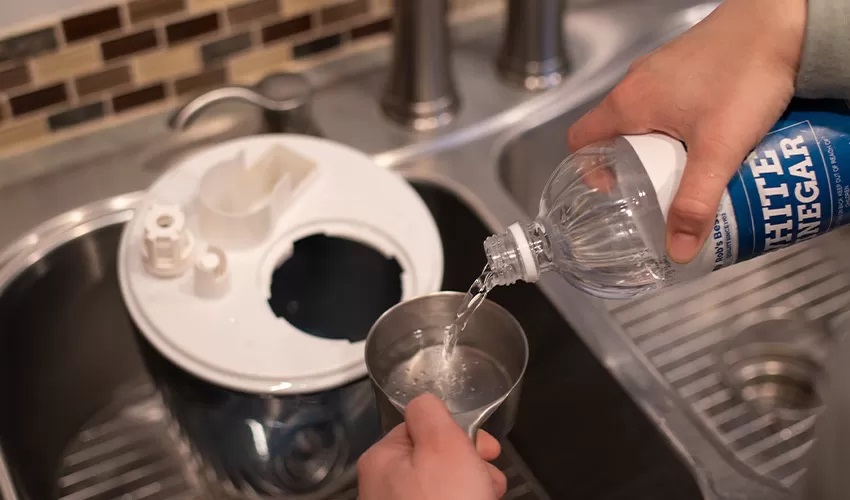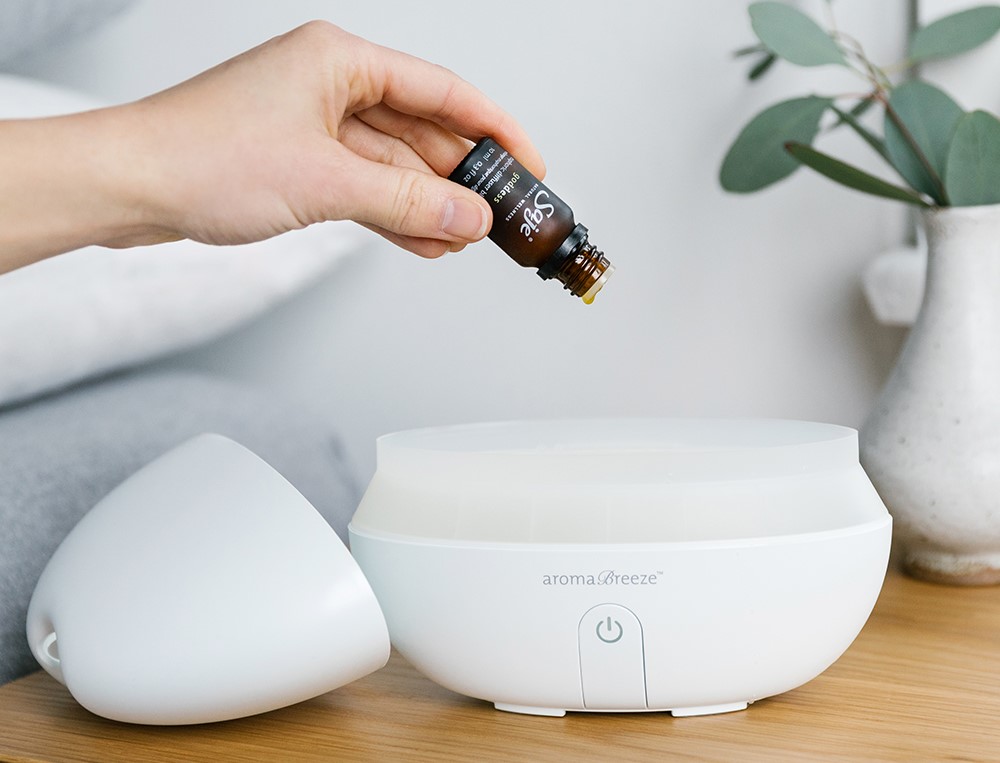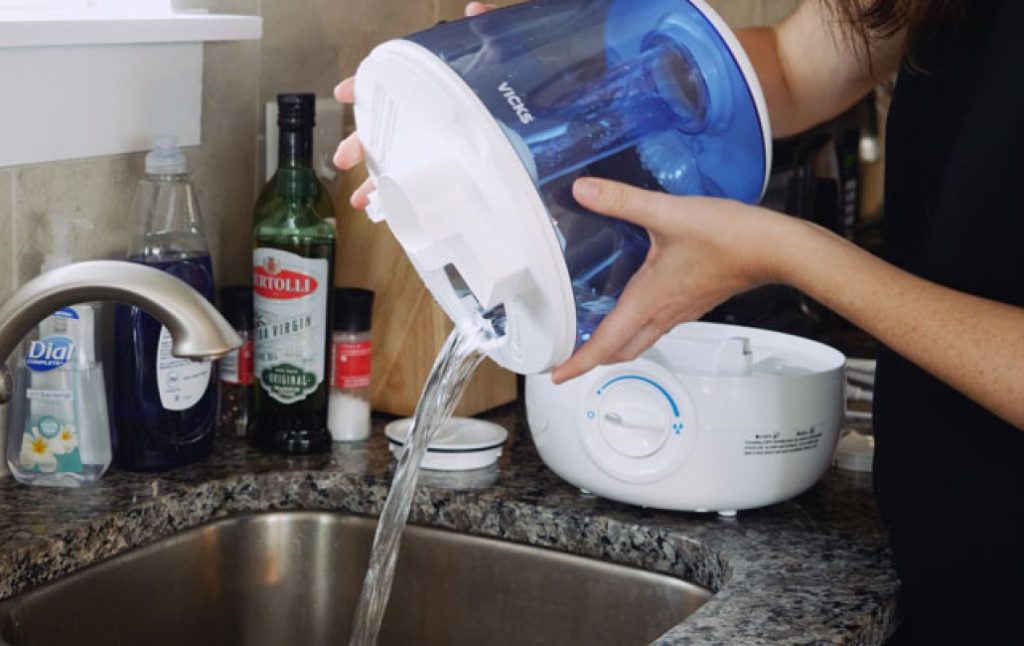

A humidifier has only one job: to add moisture into the air. When the relative humidity in your home drops below a comfortable point, you begin to experience various uncomfortable symptoms like a dry cough, dry throat, chapped lips and other respiratory complications. The comfortable level of humidity is 30%. Anything below or more feels uncomfortable. Health professionals highly recommend a humidifier to ease the symptoms.
Whenever your child suffers a nasal congestion and has trouble breathing at night, you instinctively plug in the humidifier in their room and go to sleep hoping it will make a difference. But, does it really work? Can a humidifier make a cough worse? Up to now, there isn’t any solid evidence that a humidifier is effective in the treatment of upper respiratory diseases but experts Trusted Source Humidifiers: Ease skin, breathing symptoms - Mayo Clinic Humidifiers can ease problems caused by dry air. But they need regular maintenance. Here are tips to ensure your humidifier doesn’t become a health hazard. www.mayoclinic.org insist that they ease skin and breathing symptoms. This article discusses the impact of a humidifier on coughs at length. Before we delve into the details, let’s establish the cause of a cough first.
We all become highly prevalent to dry coughs when the weather is cold. During winter, or the cold weather period, our bodies and immune systems get stressed and tensed. This increases our vulnerability to infections like the common cold and flu.
What’s more, when the temperatures become too low, we rely heavily on artificial heating appliances to keep warm. The appliances heat up our indoor spaces but they result in dry heat in the house, which causes a multitude of health hazards.
When you breathe in dry air during winter, your lungs are affected. Our respiratory systems have fluids that keep the nasal passage and airways moist so we can breathe well. Dry air makes the respiratory fluids evaporate leaving your airways dry. The dryness causes swelling and irritability which trigger you to cough.
A humidifier can only make a cough worse if it is used incorrectly. Here are the main circumstances under which your cough would get worse even after using a humidifier as a remedy:
If your humidifier is neglected and dirty, it will definitely worsen your cough. Are you familiar with the term humidifier lung? A dirty humidifier can do more harm to your condition by exacerbating your allergies and giving you mold sickness.
The environment in the humidifier is conducive for the breeding of bacteria and mold spores if it is not cleaned regularly. It can become a virtual air pollution machine that emits humidity filled with germs and mold spores.
Adding humidity to an already humid space can exacerbate the growth of dust mites and mold. The two are the main household allergens that can cause respiratory infections that cause a cough, sneezing and chest discomfort.
You must ensure the humidity in your home is at the 40 to 60% level depending on the season. Just like too little humidity is a problem, too much humidity is also a problem.
Now imagine having an already humid room with a dirty humidifier adding humidity to it. It becomes double trouble. Anyone who would be a victim would be a non-believer in the idea of using a humidifier to relieve coughs.
Before giving up on the use of a humidifier to relieve a cough, here are a few things you could try to improve your humidifier’s effectiveness:
Use a hygrometer to determine the humidity of your home so that you don’t risk adding humidity to an already humid space. According to the latest study Trusted Source Indirect health effects of relative humidity in indoor environments. A review of the health effects of relative humidity in indoor environments suggests that relative humidity can affect the incidence of respiratory infections and allergies. Experimental studies on airborne-transmitted infectious bacteria and viruses have shown that the survival or infectivity of these organisms is minimized by exposure to relative humidities between 40 and 70%. Nine epidemiological studies examined the relationship between the number of respiratory infections or absenteeism and the relative humidity of the office, residence, or school. www.ncbi.nlm.nih.gov by National Library of Medicine, humidity levels in your home should not drop below 40% or rise above 60%.
If you find that you don’t need a humidifier, then turn off your humidifier immediately. If the humidity is too high you should even consider getting a dehumidifier to help balance your home’s relative humidity.
If you add clean moisture to the air when it is dry will definitely ease the symptoms of a chronic cough. A dirty humidifier cannot add clean moisture into the air. Instead it will add moisture filled with germs and mold spores which can worsen your cough and cause other health hazards.
You should routinely clean your humidifier and disinfect it with a bleach solution to kill any mold or bacteria. You should also change the water routinely to prevent any mold or bacteria production. You can add vinegar or store-bought additives to the water to inhibit the development of bacterial and mold spores.
The Guardian Aquastick Antimicrobial treatment is one of the most popular additives you can add to the water in your humidifier’s tank to prevent the growth of mold ad bacteria. It is incredibly affordable and can be used in both ultrasonic and evaporative humidifiers.
Most people are aware that tap water is not the best or safest way to hydrate but when it comes to humidifying their homes they feel it’s different. The quality of water you use in the humidifier directly affects the quality of air you breathe in your home.
The best water to use in your humidifier is mineralized or boiled water. Unless, of course, you are using a vaporizer which works by boiling water and emitting the steam into the room to humidify the air.
There is a lot of skepticism around the use of a humidifier in relieving chronic cough and other respiratory infections. Medical practitioners swear by the device and insist that if used correctly, has a significant effect in controlling coughs.
When you start coughing during the cold weather period and you plug in a warm or cool mist humidifier, you are highly likely to experience optimum relief. The results may differ among different people depending on a few parameters like the duration of the cough and how the humidifier has been used.
Thanks to advancement in Science and technology, there are a couple of humidifiers that you could invest in to relieve you from uncomfortable cough symptoms. They include:
These heat the water stored in their tanks then release the steam into the air. The steam clears your nasal passage, helping you breathe better. Difficulty in breathing is one common cough symptom, especially if the chest is congested.
Instead of releasing warm mist into the air like warm mist humidifiers, cool mist humidifiers release a cool mist. They trap air contaminants with a filter then release mist free of microorganisms into the room. So can a cool mist humidifier make your cough worse? The answer is Yes, if you use it incorrectly.
A cool mist humidifier is perfect for people who live in warmer climates as it lowers the temperatures slightly reducing the high levels of discomfort for cough sufferers.
According to expert reviewers, the Everlasting comfort humidifier is the best cool mist humidifier that money can buy. It is suitable for large rooms and it features a large water tank that can last you up to 50 hours of continuous use without a refill.
Elechomes UC5501 is another popular humidifier. It is highly acclaimed because it is a warm and cool mist combo. It features an intelligent humidity sensor that adjusts its humidifying strength automatically, according to your needs.
These are large units that can humidify an entire house. They are entirely different from cool mist and warm mist humidifiers in terms of size and operation. They also need higher maintenance and regular change of filters.
These are the most modern humidifiers on the market. They use a combination of metal diaphragm and ultrasonic vibration to distribute moisture.
All the humidifiers mentioned above have advantages and disadvantages but when it comes to relieving cough symptoms, cool mist and warm mist humidifiers are the prime options. Even the best ultrasonic humidifier cannot be more beneficial to someone suffering a cough than the warm mist humidifier.
Coughing is very common in the cold weather season. Medical practitioners usually recommend using a humidifier to relieve coughs and other respiratory infections caused by inhaling dry air in the cold season. Whenever we catch the common cold or get frequent asthma attacks in winter we instinctively plug in humidifiers in our homes for comfort. Some people have had their symptoms worsen with the use of a humidifier and this begs the question: can a humidifier make a cough worse?
Well, the answer is YES. A humidifier can worsen your cough symptoms if you use it incorrectly. If you don’t clean your humidifier routinely, use tap water and have it on when the relative humidity in your home is at the correct level then your cough will get worse. You might even develop other health complications. Otherwise, a humidifier should be able to ease your cough.





